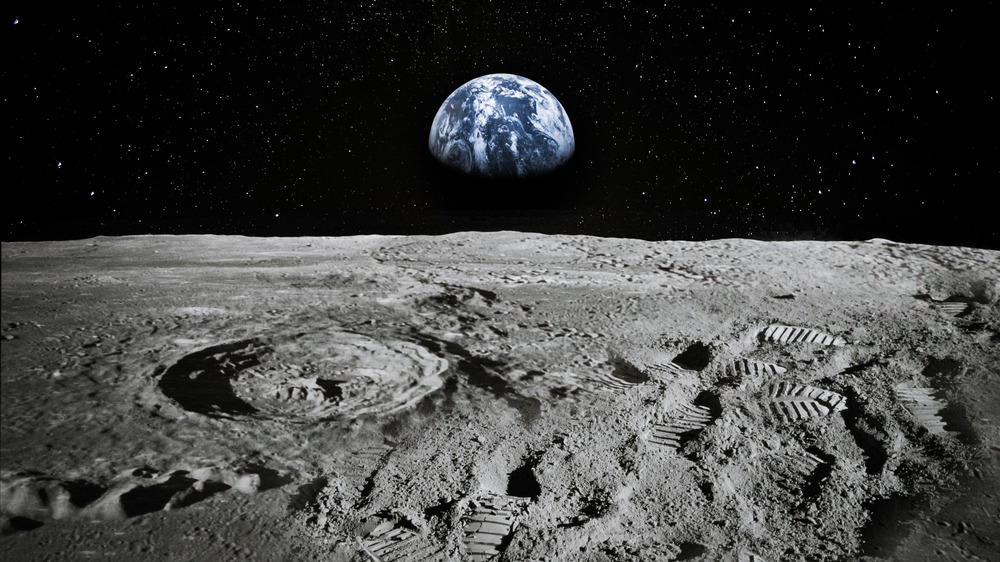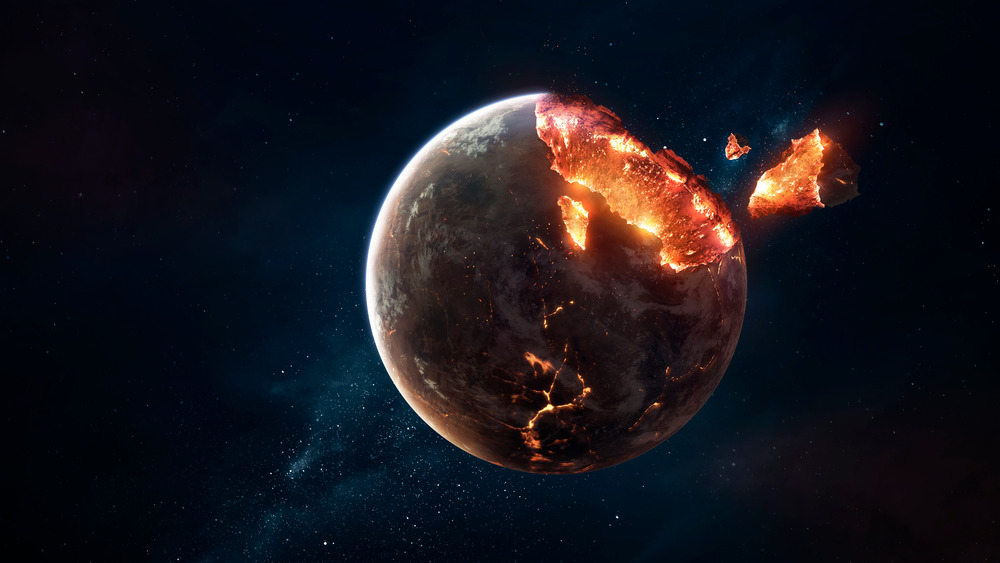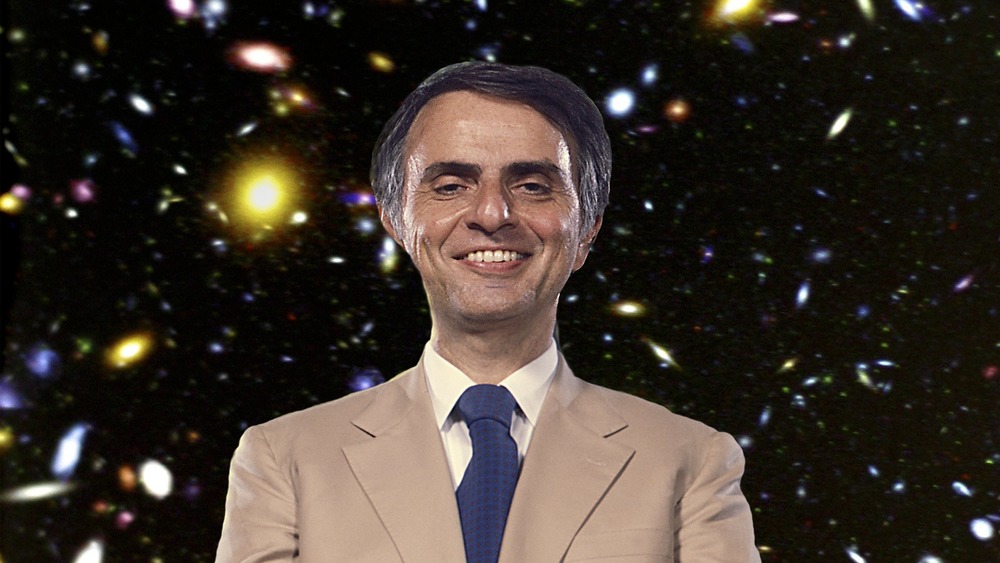The Surprising Reason NASA Once Teamed Up With The Air Force
When you think of movies that accurately portray the global lunacy of the Cold War, serious flicks like Crimson Tide or the 2015 Tom Hanks movie Bridge of Spies come to mind. However, according to former NASA physicist Leonard Reiffel, parodies like Dr. Strangelove and Austin Powers would actually be more accurate descriptions of Project A119. As the L.A. Times reported in 2000, Reiffel was part of a collaborative operation between NASA and the Air Force to detonate a nuclear warhead on the moon. That's right. Grown men in some of the highest levels of the U.S. government actually considered nuking the moon. "Now it seems ridiculous and unthinkable," said Reiffel. "But things were remarkably tense back then." Thankfully, for all of us in the galaxy, reason finally won out.
But why would anyone feel it was a good idea to nuke the moon in the first place? Why, to show off, of course. The Russians had just launched Sputnik, and the United States — perhaps literally — went collectively nuts. In the national mania, the Eisenhower administration felt that it might be a good idea to send an atomic bomb up to the moon and blow it up just to show Russia that the United States could do it. But luckily the mission was scrapped, as military officials felt it unwise to needlessly endanger those of us down here on Earth, and scientists didn't like the idea of contaminating the moon with radioactive fallout.
The 'scientific reasoning' for the NASA/Air Force plot to nuke the moon
Of course, the guys at NASA and the Air Force couldn't just admit that they were basically the nuclear equivalent a bunch of teenagers with a bag full of fireworks and some old stuff they wanted to blow up. They had to come up with scientific reasons that would justify doing something as stupid as atom-bombing the moon. So, according to HuffPost, they dressed the project up in the empirical-sounding name: "A Study of Lunar Research Flights." The abstract for the 190-page document reads: "Nuclear detonations in the vicinity of the moon are considered in this report along with scientific information which might be obtained from such explosions." You know: scientific inquiry.
The Air Force was apparently already dreaming up a Space Force, as the document claimed that the U.S. military would benefit from testing out how Earth weapons performed in space. The abstract then goes on to say that nuking the moon would somehow help us understand the moon's structure, origin, and "the probable nature of the lunar surface." Disciplines like "optical lunar studies, seismic observations, lunar surface and magnetic fields" and others were given as further justification, but it's hard not to imagine a stainless steel room full of cigar-smoking generals just itching to see what happens when you make the moon go boom. "There was lots of talk on the part of the Air Force about the moon being 'military high ground,'" said Reiffel.
Carl Sagan was also a part of the moon nuking idea
Despite having brought science and astronomy into mainstream American pop culture and being considered the world over as a pretty smart guy, astronomer Carl Sagan was actually involved in Project A119. The L.A. Times said that he did some calculations on how gas and dust generated by the blast might possibly behave. Also, in a pretty epic example of brain flatulence from an otherwise intelligent guy, he apparently listed his involvement in the project — which was obviously classified — on an application for an academic fellowship in 1959.
Or maybe Sagan did so deliberately in order to leak the crazy schemes that the military was cooking up out in space. According to The Guardian, friends of his said they didn't think he would ever willfully disclose classified information, but it's kind of hard for us to believe that he would make such a silly mistake. Reiffel himself was opposed to the idea, and it's probably a safe bet that Sagan didn't actually want anyone blowing up the moon.
"I made it clear at the time there would be a huge cost to science of destroying a pristine lunar environment," said Reiffel, "but the U.S. Air Force were mainly concerned about how the nuclear explosion would play on earth." He said he didn't know why the project was cancelled, but he was glad it was. "Thankfully, the thinking changed. I am horrified that such a gesture to sway public opinion was ever considered."


